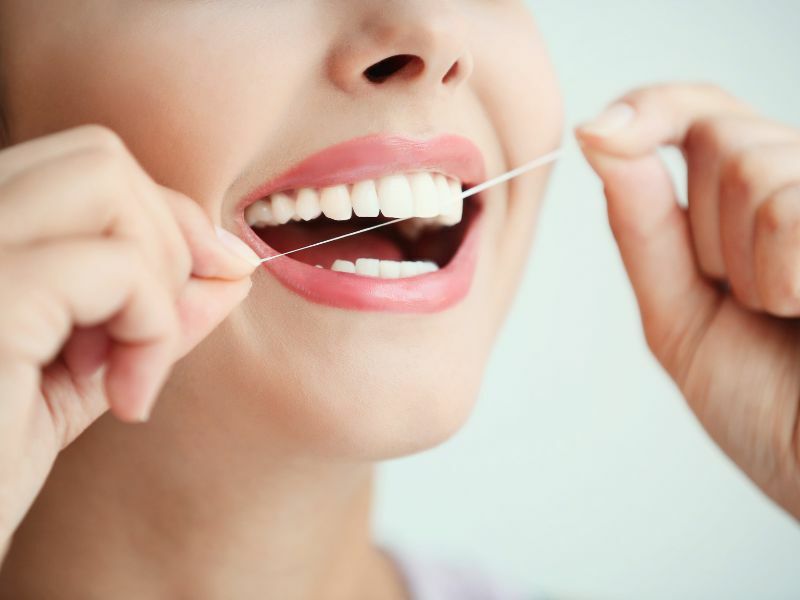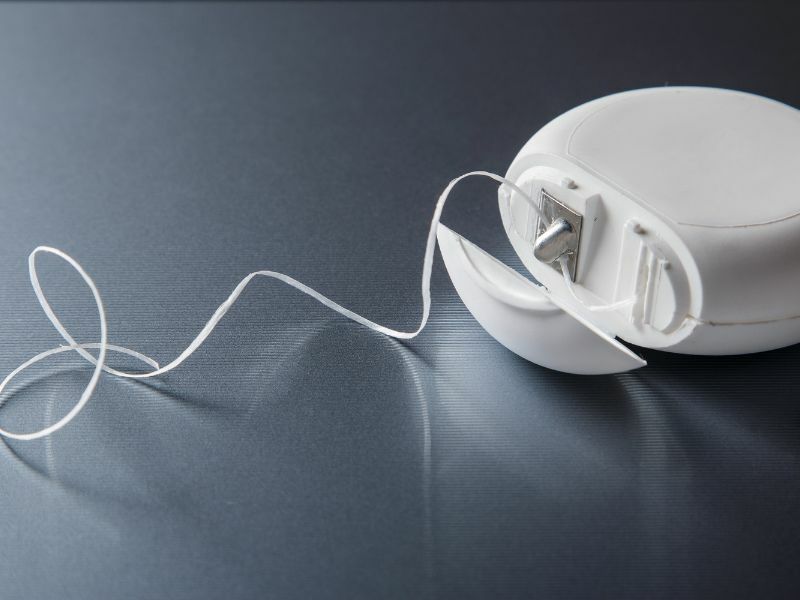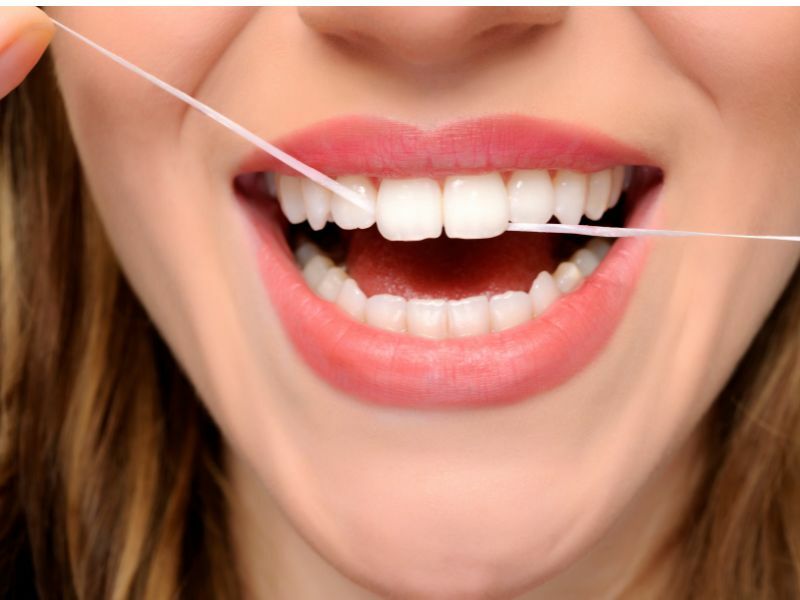Everyone knows that flossing is a critical component in keeping good oral hygiene, but the number of times a day or week and how often you should floss isn’t as clear. At Sninski & Schmitt, we recommend that you floss at least once a day. In this post, we lay out several reasons why we endorse this frequency.

Everyone knows that flossing is a critical component in keeping good oral hygiene, but the number of times a day or week and how often you should floss isn’t as clear. At Sninski & Schmitt, we recommend that you floss at least once a day. In this post, we lay out several reasons why we endorse this frequency.
Why Flossing is Important
While brushing your teeth twice a day is a foundation for keeping your teeth and gums healthy, flossing is just as important. Flossing cleans between the teeth where brushing can’t reach. Using floss to get in between teeth where food can get caught helps to ensure that your gums are clear of the growth of bacteria.
Flossing disrupts the formation of dental plaque, resulting from the sticky deposit that builds up and eventually hardens. By regularly flossing you are engaging in a low-risk, low-cost way to clean parts of your teeth where your toothbrush can’t reach.
If you don’t floss, plaque builds up along the gum line, leading to inflamed gums and even more severe gum disease like gingivitis. Read this post on eight health issues that will happen if you don’t floss.
Flossing helps to prevent:
- Gum disease
- Tooth decay
- Dental plaque
- Reduces bad breath
How Often Should You Floss?
The American Dental Association recommends you floss once a day, preferably at night before you go to bed. Not only is the frequency important but also the timing. By flossing at night before you have brushed your teeth, you are displacing any of the substances that have lodged between your teeth and then brushing them away. It has been found that flossing first and then followed by brushing with a fluoride toothpaste is more effective in removing interdental plaque than brushing first and flossing second.

Reasons to Floss Daily
If you brush twice a day and don’t floss, you can erroneously assume that you are doing enough to keep your teeth healthy. Brushing is just one part of keeping your mouth healthy; flossing is the other part. Here are five reasons for flossing every day.
1. To Prevent Tooth Decay
When food particles, particularly high sugar and starch particles, remain on your teeth or get trapped in places that are tough to reach, bacteria grow. The bacteria eventually eat away at tooth enamel and lead to cavities and decay between the teeth or along the gum line.
2. To Prevent Gum Disease
Not only does flossing remove food particles and debris on the teeth, but it can also reduce plaque and particles along the gum line. If these particles remain, bacteria will grow below the gums and lead to gingivitis. Gingivitis is a deteriorating condition that affects 47 percent of American adults. Over time and without treatment, gum disease will worsen, causing infection and even tooth loss.
3. To Stop Bleeding Gums
You may want to stop flossing when your gums bleed, but this is the wrong decision. Debris and bacteria around the gums cause inflammation and flossing can irritate the inflamed tissues. This, in turn, causes them to bleed. By brushing and flossing regularly, you can stop bleeding gums when you floss.
4. To Improve Your Breath
Chronic bad breath is caused by bacteria in your mouth. By removing the food particles, plaque, and debris, you minimize the bacteria, which helps you achieve fresher breath.
5. To Maintain an Attractive Smile
By brushing twice a day, flossing once a day, and getting dental checkups and teeth cleaning regularly, you will minimize the risk of tartar build-up, cavities, and gum disease. This adds up to a healthy smile.
The Right Way to Floss
Flossing the proper way is important as well. Using the wrong approach can mean that your efforts are wasted. Learning to floss the correct way takes a bit of practice. Refer to this post for effective brushing and flossing techniques.
The American Dental Association recommends you floss once a day, preferably at night before you go to bed. Not only is the frequency important but also the timing. By flossing at night before you have brushed your teeth, you are displacing any of the substances that have lodged between your teeth and then brushing them away. It has been found that flossing first and then followed by brushing with a fluoride toothpaste is more effective in removing interdental plaque than brushing first and flossing second.

Schedule an Appointment for a Dental Checkup Today
Having regularly scheduled dental checkups and cleanings is as important as your daily dental care at home. If you are due for a checkup, note that we have two convenient locations. Call us at our Holly Springs dentist office at (919) 600-6262 and our Cary, NC dentist office at (919) 467-2203. You can also complete our contact form to schedule an appointment.

